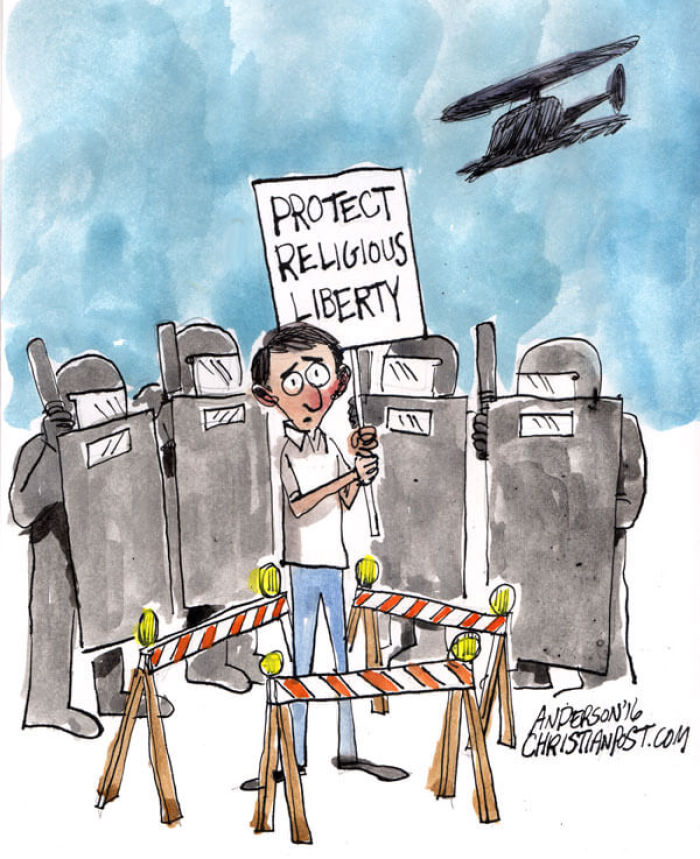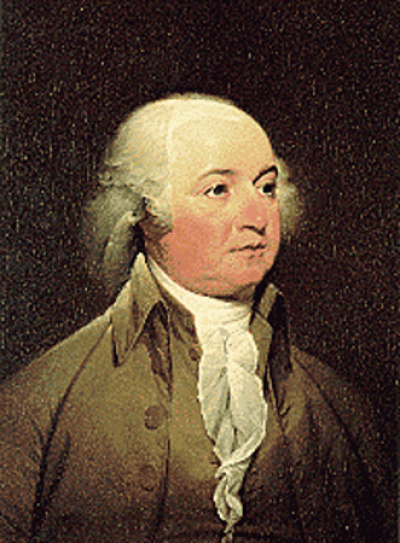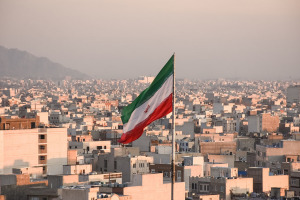Obama Civil Rights Official Misquotes Founding Fathers to Target Conservative Christians

"The phrases 'religious liberty' and 'religious freedom' will stand for nothing except hypocrisy so long as they remain code words for discrimination, intolerance, racism, sexism, homophobia, Islamophobia, Christian supremacy or any form of intolerance." — Those were the words uttered by one Mr. Castro.
Not Fidel.
Rather, one Martin Castro, the chairman of the U.S. Commission on Civil Rights, who launched a broadside recently against religious faith, degrading the vision of the Founding Fathers that made this country the envy of the world.
Castro, an Obama appointee, released a report on September 7 on protections against discrimination. His finding, in part, is that Americans need to be protected from Bible-thumpers, and anyone else whose beliefs run afoul of the administration's PC police. Religious folk need not apply.

In the report Castro cited John Adams. "The government of the United States is not, in any sense, founded on the Christian religion." But Adams did not write those words. They were part of a treaty to end the Barbary War. "Christian" ships and crew were fair game for Barbary pirates, Ambassador Abdrahaman of Tripoli told Thomas Jefferson that all Christians are sinners in the context of the Koran and that it was a Muslim's "right and duty to make war upon them wherever they could be found, and to enslave as many as they could take as prisoners."
U.S. negotiators tried to downplay the clash of religions. The treaty therefore stressed that the U.S. was not an officially Christian nation, but a secular one, and therefore should never have been targeted. Adams signed the treaty, but it had nothing to do with his belief about the importance of Judeo-Christian religions to the stability of society.
Here are the words that flowed from President Adams' pen. "We have no government armed with power capable of contending with human passions unbridled by morality and religion . . . Our Constitution was made only for a moral and religious people. It is wholly inadequate to the government of any other."
George Washington expressed similar thoughts in his Farewell Address. "Of all the dispositions and habits which lead to political prosperity, religion and morality are indispensable supports. In vain would that man claim the tribute of patriotism, who should labor to subvert these great pillars of human happiness."
Our Founding Fathers would have cautioned against attempts to "subvert these great pillars" of religion and morality.
Alexis de Tocqueville, the great French historian and admirer of American democracy, introduced the Continent to the workings of the American upstarts."The Americans combine the notions of religion and liberty so intimately in their minds that it is impossible to make them conceive of one without the other."
Waves of immigrants after de Tocqueville were often far less lettered, but they did share his understanding, and dreamt of being part of it. Religious freedom, toleration and fairness were all intertwined in the unique American package that so many desperately seek to be a part of.
Commissioner Castro has another vision.
In the letter addressed to the president, the vice president, and the Speaker of the House, he wrote, "Religious exemptions to the protections of civil rights based upon classifications such as race, color, national origin, sex, disability status, sexual orientation, and gender identity, when they are permissible, significantly infringe upon these civil rights."
What he is saying is that in 2016 it's Big Brother's responsibility to curtail those exemptions. If that isn't to your liking, you can always move. Maybe to Tripoli.
Castro's America would not be recognized by James Madison, who argued that religious conviction ought to be placed ahead of — not behind — the agenda of the State.
In his "Memorial and Remonstrance against Religious Assessments of 1785," the architect of our Constitution wrote: "It is the duty of every man to render to the Creator such homage and such only as he believes to be acceptable to Him. This duty is precedent, both in order of time and degree of obligation, to the claims of Civil Society."
Not so long ago, America projected its global power to protect religious freedoms. Throughout the Cold War we strove to help brave believers behind the Iron Curtain to keep the embers of religion from being totally extinguished by atheistic Communist dictatorships.
We demanded of our chief international nemesis, the USSR, that any negotiations on nuclear arms reduction must be linked to human rights — including freedom of religion.
Eventually, Gorbachev relented, the Berlin Wall came down, and the war against religion came to an end.
Recent U.S. administrations were true to the legacy of our Founders by taking a leadership role in urging all governments to guarantee the religious rights of minorities who, when leaving their respective houses of worship on their holy days, could return to their homes unmolested.
Today, hundreds of millions of minority Baha'i, Hindus, Buddhists, Muslims — but chiefly Christians — have no confidence that American power or policy have their backs.
Respect for religion and religious values were at the core of our Founding Fathers' vision and an inspiration to endangered religious people the world over. We can only hope that the next head of America's Civil Rights Commission will protect — not slander — people who dare set their moral compass by the words of G-d.
Originally posted at foxnews.com.




























